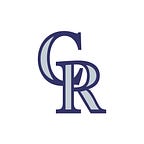1998 All-Star Game: A Snapshot of History Makers
By Jack Etkin
Fifteen future Hall of Famers were at Coors Field in 1998 when the first All-Star Game was played at 20th & Blake. And nine of those 15 players were elected the first year they were eligible for the Hall of Fame. The future Hall of Famers were fairly divided among both leagues, with seven from the American League and eight from the National League.
Six future Hall of Famers were in the NL’s starting lineup: second baseman Craig Biggio, right fielder Tony Gwynn, third baseman Chipper Jones, catcher Mike Piazza, center fielder Larry Walker — who typically played right field for the Rockies — and pitcher Greg Maddux. The NL bench included pitchers Tom Glavine and Trevor Hoffman.
Gwynn, Jones, Maddux and Glavine were elected in their first year on the ballot, Biggio and Hoffman in their third year, Piazza in his fourth year and Walker in his 10th and final year on the ballot in 2020.
The starting lineup for the AL included second baseman Roberto Alomar, center fielder Ken Griffey Jr., shortstop Cal Ripken Jr., catcher Ivan Rodríguez and first baseman Jim Thome. On the AL bench were shortstop Derek Jeter and pitcher Pedro Martínez. All were elected the first year they were eligible to be on the ballot of the Baseball Writers’ Association of America except for Alomar, who was voted in the second year he was on the ballot.
Members of the BBWAA for 10 consecutive years are eligible to vote, and a player must receive 75 percent of the votes cast to be elected to the Hall of Fame. A player must receive 5 percent of the votes to remain on the ballot and can do so for 10 years.
Several other players from that 1998 All-Star Game are still on the Hall of Fame ballot, notably AL pitcher Roger Clemens and NL left fielder Barry Bonds. Both were suspected of using performance enhancing drugs and will appear on the ballot for the final time in 2022. This year, Bonds received 61.8 percent of the vote and Clemens 61.6 percent. Those were personal bests for both players, but neither has gained much ground in recent years.
Shortstop Alex Rodríguez started for the AL in 1998. He will be on the BBWAA ballot for the first time in 2022, but likely is facing a steep uphill climb to election because he was suspended for 211 games, including the entirety of the 2014 season, for receiving performance-enhancing drugs.
Pitcher Curt Schilling was on the NL team but didn’t appear in the 1998 All-Star Game. He will be on the Hall of Fame ballot a final time in 2022. Schilling received 71.1 percent of the vote this year, leaving him 16 votes shy of election. But his rise was incremental from 70 percent in 2020. Schilling’s climb to the 75-percent threshold has been hurt by his controversial comments in public and on social media.
Shortstop Omar Vizquel, an AL reserve who appeared in the 1998 All-Star Game, received 49.1 percent of the vote this year, his fourth on the Hall of Fame ballot. But that was down from 52.6 percent in 2020. Vizquel was accused of domestic violence by his wife, which was reported in a story published in mid-December, when some voters already had returned their ballots. The allegations likely will have a greater effect on Vizquel’s candidacy in the 2022 election.
Two other NL outfielders from that All-Star Game at Coors Field are Hall of Fame eligible. This year, Gary Sheffield received 40.6 percent of the vote in his seventh appearance on the ballot, and Sammy Sosa received 17 percent this year, his next to last on the ballot.
